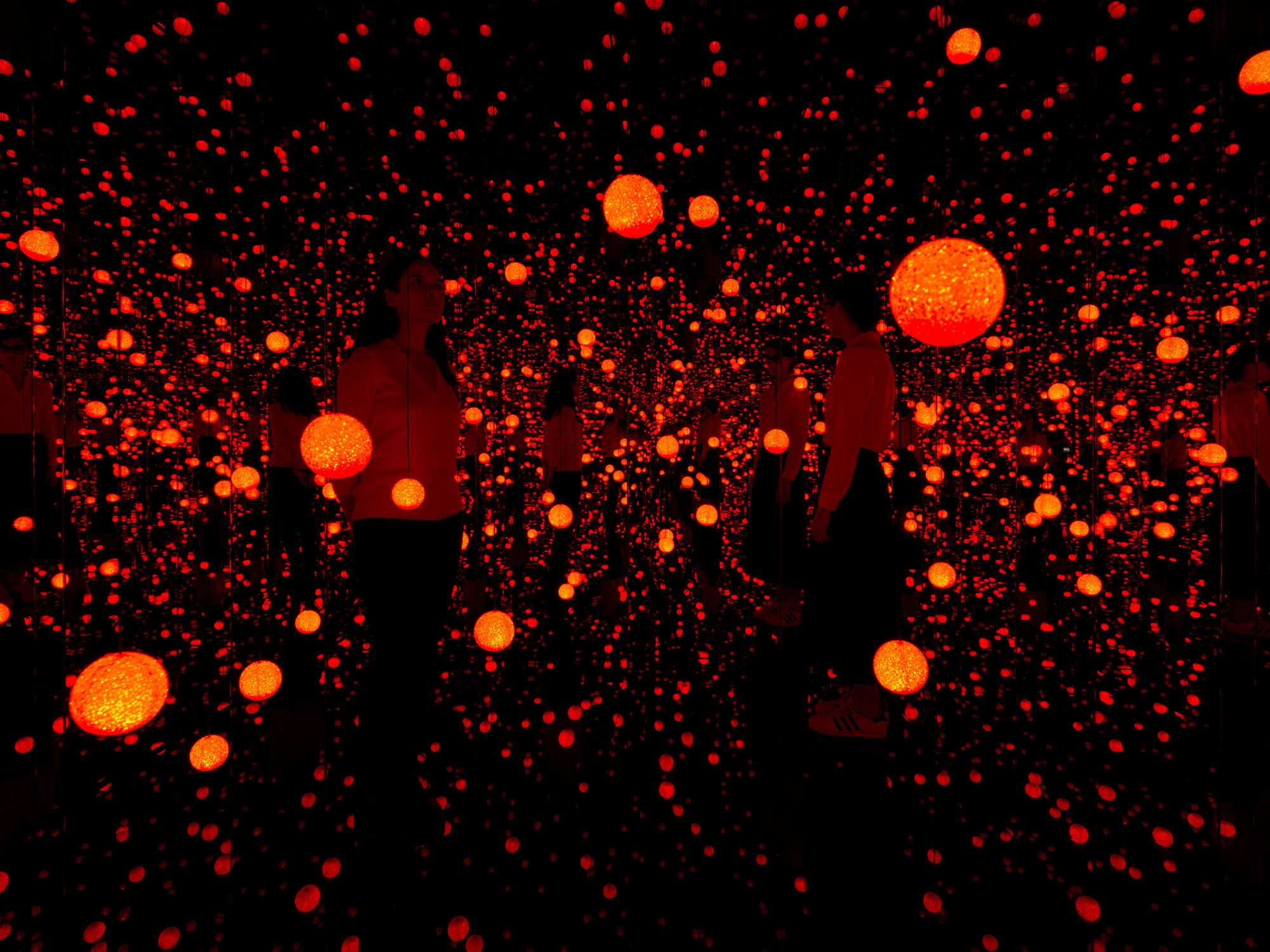
Free
Foundation
Yayoi Kusama: DANCING LIGHTS THAT FLEW UP TO THE UNIVERSE
July 6 → January 15, 2023
In celebration of its 15th anniversary, the PHI Foundation for Contemporary Art is pleased to present an exhibition by Yayoi Kusama
Contemporary art has the potential to empower children through progressive forms of pedagogy. How can art institutions encourage them to interpret artworks in their own way and think freely?
Since the fall of 2022, the alternative school Le Vitrail in Rosemont has participated in a project titled School at the Museum, which entails bringing elementary to high school classes to a museum once a week over the course of multiple weeks, and connecting the school curriculum to this experience. The PHI Foundation’s Education department welcomed its grade 5/6 class every Friday for a six-week period to learn about the Yayoi Kusama exhibition.
In this conversation, Marie-Hélène Lemaire, Head of Education, and Zoe Compton, Educator, recount their experience and memorable interactions with the students and their teacher Laurence Douville during this project.
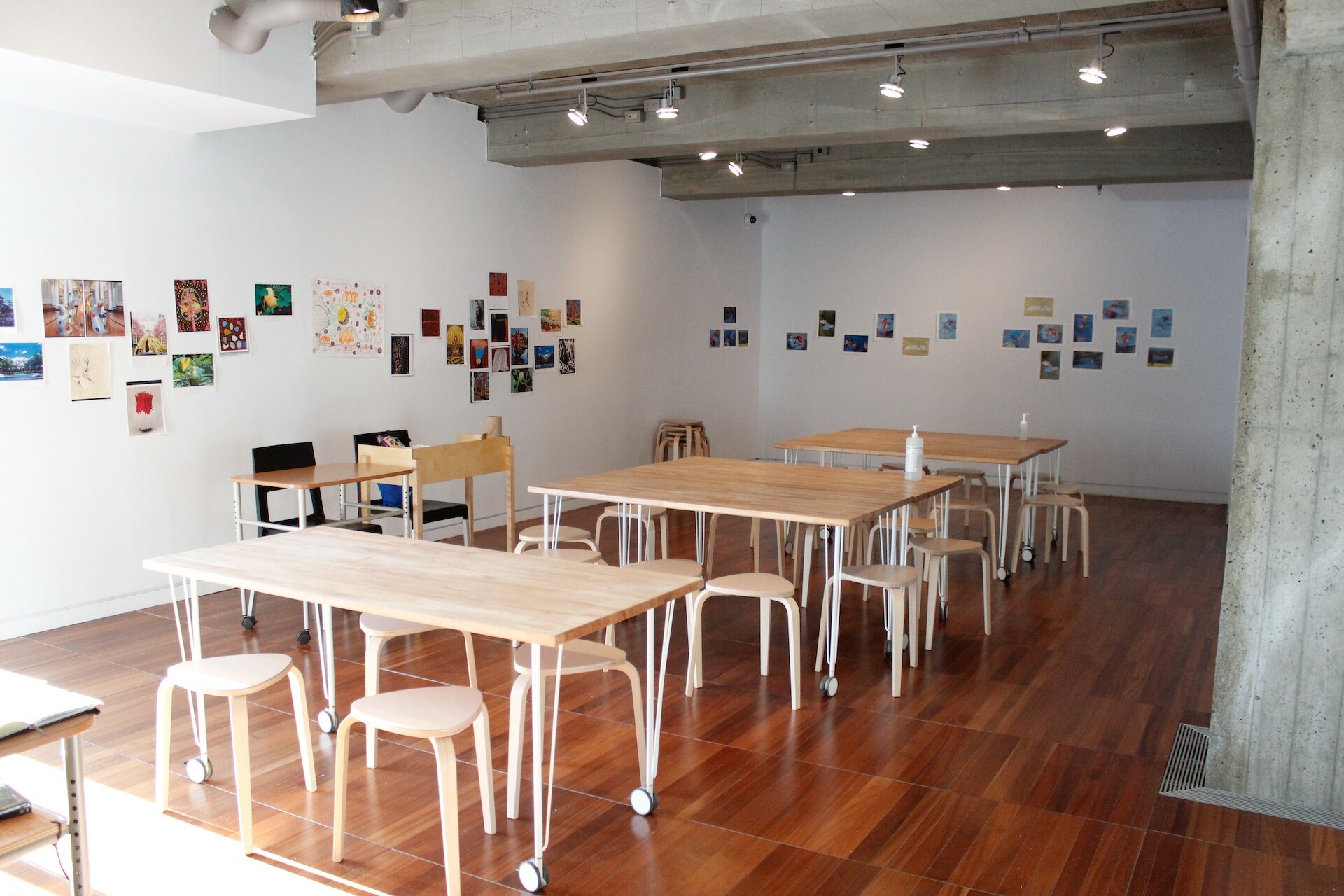
Gestures of mutual hospitality empower children.
Marie-Hélène Lemaire (Head of Education): One morning during the School at the Museum project, a student ran up to me and asked, “Do you remember my name?” I responded, “Jeanne, of course, I remember your name.” I added, “The Foundation is your home.”
Zoe Compton (Educator): Indeed, welcoming a school group for an extended period of time was a unique opportunity for us to learn the students’ names and build a relationship with them and their teacher, Laurence Douville.
M-HL: The environment in a contemporary art museum can be quite intimidating. As educators, we try to empower anyone who comes through our doors by fostering dialogue and actively listening to their ideas and feelings in relation to art.
ZC: Our first move was to go visit the students’ classroom at Le Vitrail. There’s something special about welcoming each other into our respective daily environments. It helped us establish a reciprocal relationship of respect and co-learning from the beginning. We took inspiration from the classroom’s ambiance when setting up our teaching space at the Foundation.
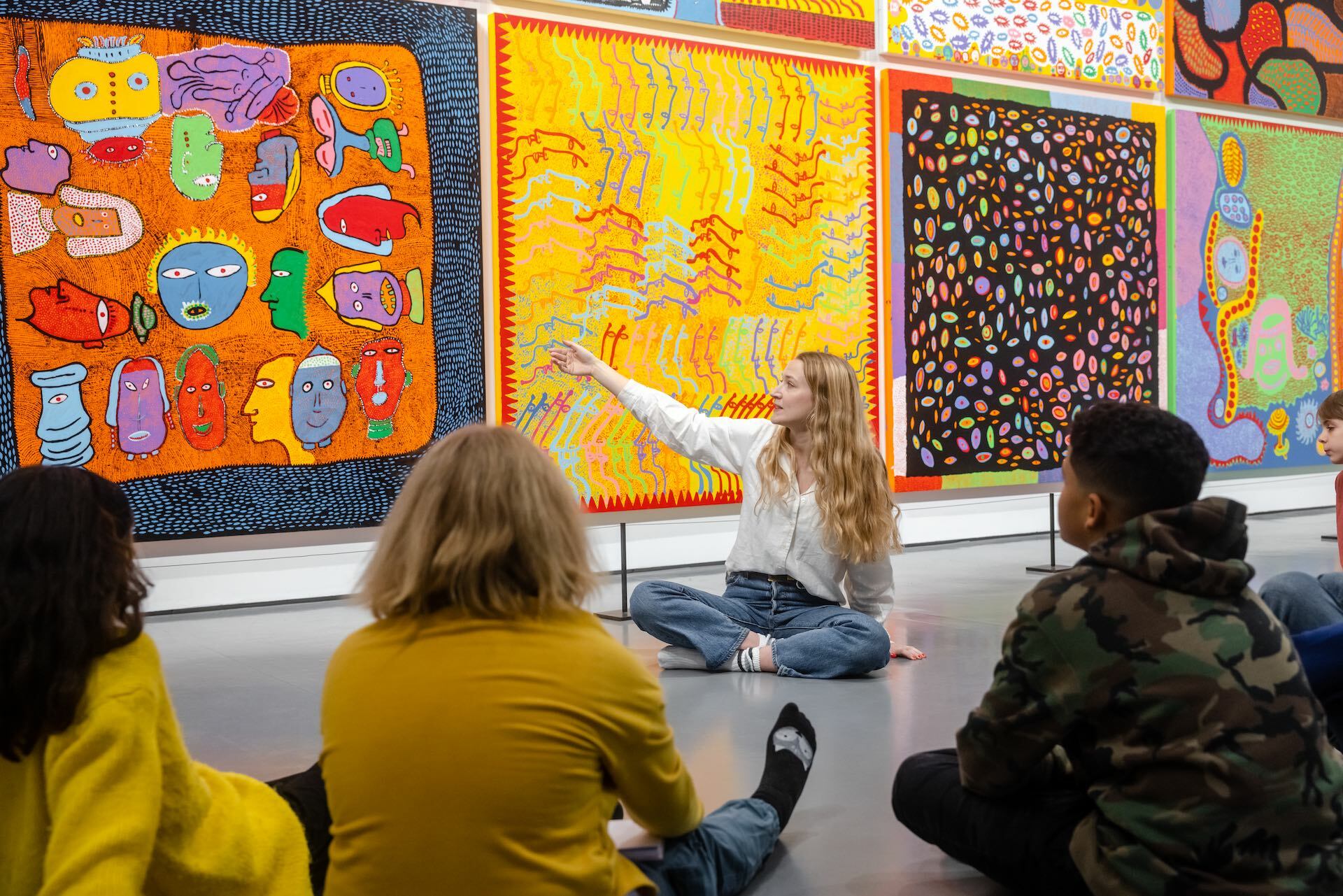
Learning in contemporary art goes both ways.
ZC: Because the project was six weeks long, it provided us an opportunity to delve deeper into the content of the Yayoi Kusama exhibition. We developed lesson plans for each day of the program, focusing on themes of nature, immersive art, and art as a vector for social change.
M-HL: During our guided visits and activities, students were so eager to contribute to the conversation! As educators, we keep an open mind and let the children influence our lesson plans because we know that learning in contemporary art goes both ways. When carefully questioned and listened to, children develop trust and learn how to articulate their insights, which truly broadens our understanding of the exhibition, and then informs our group visits with other schools.
ZC: The accompanying adults were surprised by the students’ motivation and level of engagement, in addition to the depth and richness of their perspectives on art.
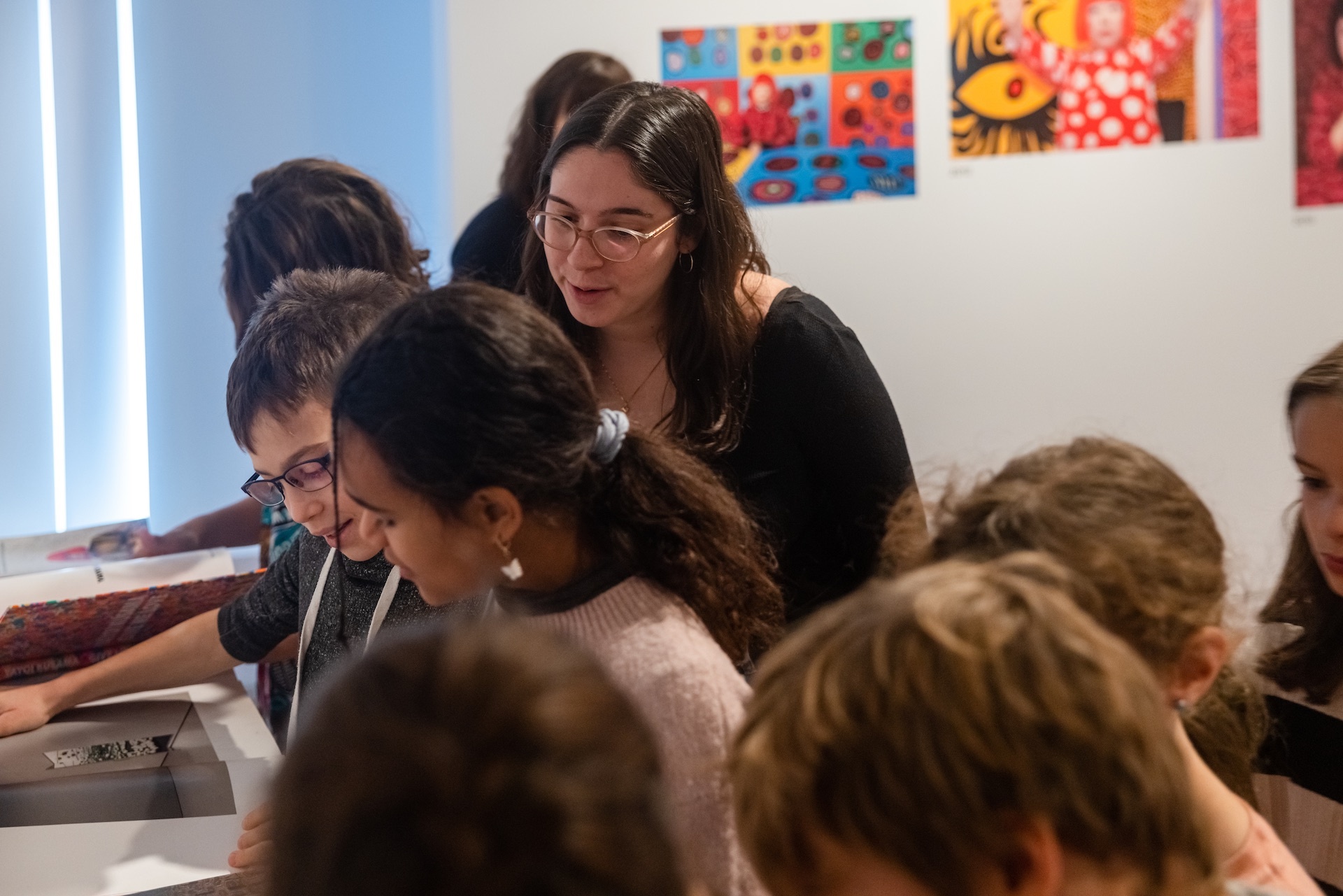
ZC: We were equally impressed by Laurence Douville’s pedagogical approach and the ways in which students are given agency over their learning. Students were encouraged to come up with projects based on their interests during School at the Museum. When it comes to alternative teaching, our values aligned well with Laurence’s in terms of keeping an open dialogue and adapting as needed.
What we explored in the galleries, Laurence expanded on in her class.
M-H: Kusama often talks about reciprocal relationships in nature. For her, natural elements, such as trees, birds, and pumpkins, are equal to human beings, and she imagines herself nesting within their form in order to understand and represent them through her artworks. This idea of reciprocity resonated with children. It was also paralleled in our collaboration with Laurence. We worked with each others’ curricula, focusing on Kusama’s views on spiritual relationships between all entities in nature — human and non-human — and between nature and the universe, connecting this with Indigenous cosmology. What we explored in the galleries, Laurence expanded on in her class.
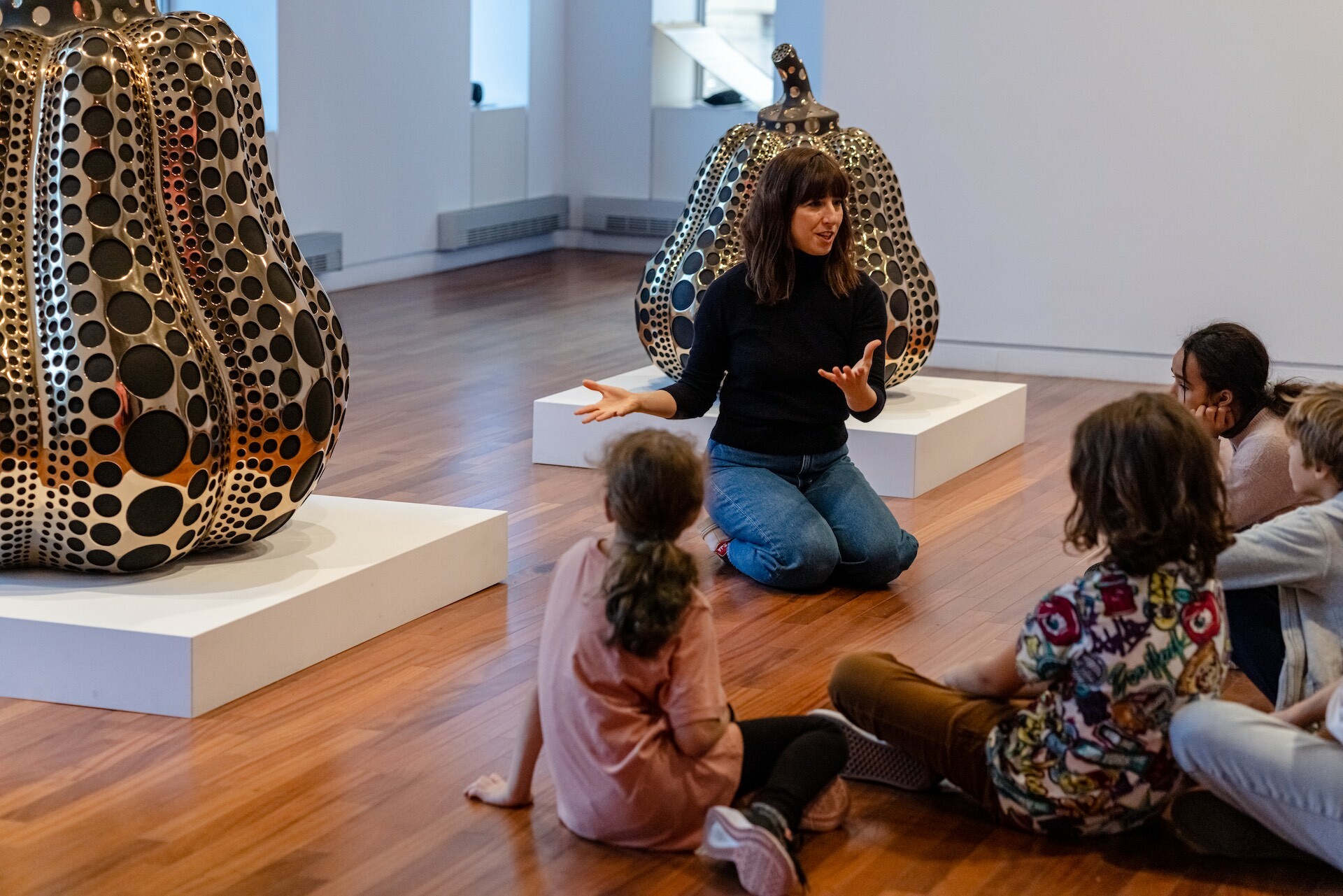
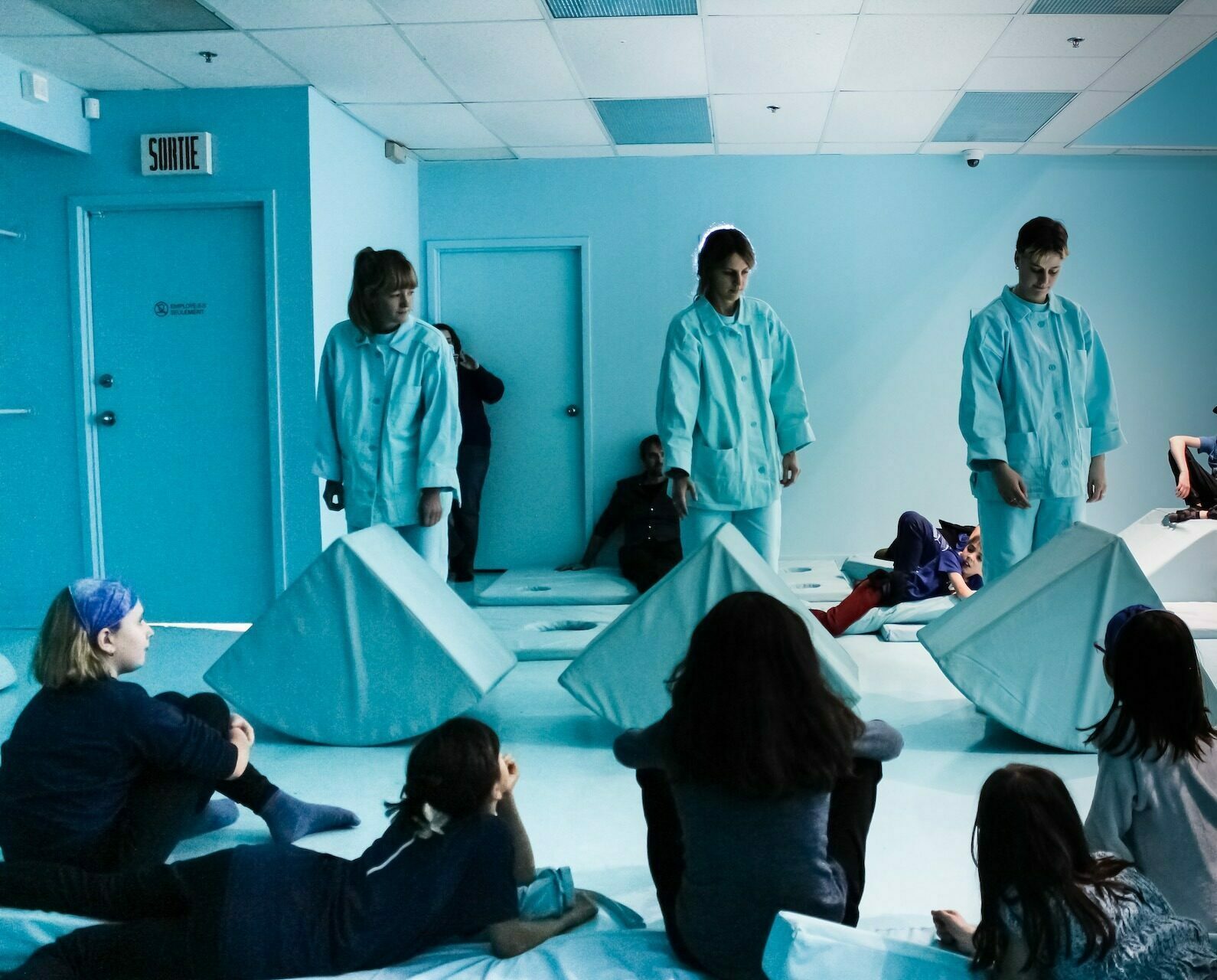
By collaborating with artists, students felt as though they were part of the art community.
ZC: I think the students’ favourite day was when we invited local artists to animate an activity. In conjunction with the Kusama exhibition, the PHI Foundation partnered with the art collective doux soft club to create an immersive installation, bleu de lieu, in our Education Room. The artists Chloë Baril-Chassé, Pénélope Bourgeois, Marion Paquette, and Mariane Stratis painted the entire room in a light blue and filled it with soft sculptures in the same shade. The installation explored themes of architecture, sculpture, body, and performance. Visitors were invited to interact with the forms by rearranging and building, climbing and napping on, and even wearing them.
M-HL: By collaborating with artists, students felt as though they were part of the art community. doux soft club really connected with the kids and spoke to them about values of friendship, care, trust, and the importance of listening to others. They had students act this out by inviting them to communicate in silence while collectively building a sculpture. Kusama's ideals of art as a vector for peace, love and social change resonated throughout.
ZC: While we were delighted to teach students about the world through art, we gained a lot from the experience as well. Above all, it exemplified how much children can contribute and teach us about art when given the agency and trust they deserve.
M-HL: School at the Museum is an exemplary project that renders art more accessible to young people, and it opens up the conversation about how to improve accessibility in cultural institutions at large.
This project is ongoing and the PHI Foundation will host a kindergarten class from Le Vitrail in the spring of 2023, where they will experience the upcoming exhibition, Terms of Use. We wish to thank Le Vitrail's director Chantal Laurin for initiating the School at the Museum project, as well as Anik Meunier, director of the GREM (Groupe de recherche sur l’éducation et les musées) at UQAM, for the coordination of the research portion of the project.
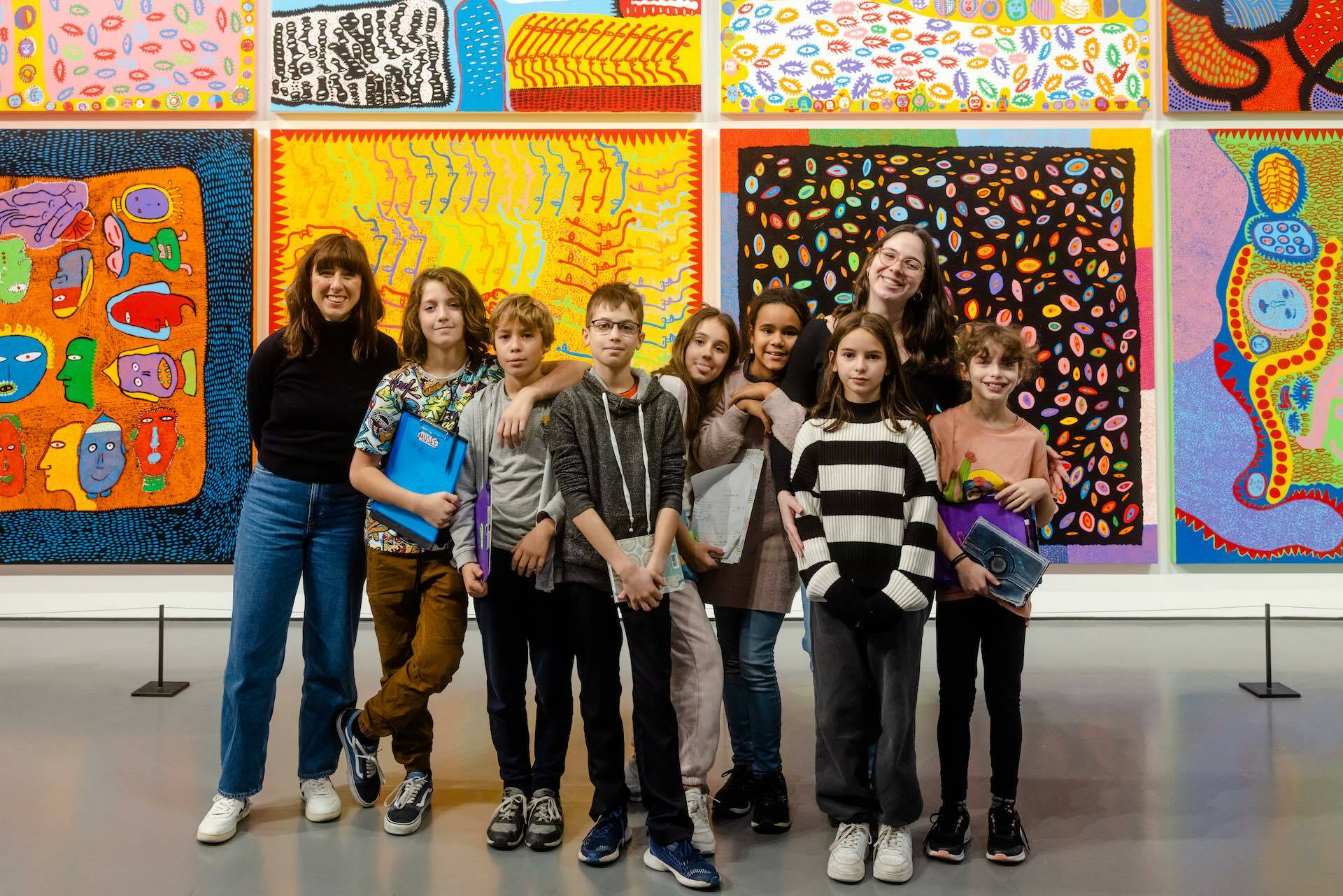
Authors
Zoe Compton
Zoe Compton is an educator and project manager at the PHI Foundation for Contemporary Art. An artist, environmentalist, and educator, Zoe holds a double bachelor’s degree in Environmental Studies and Fine Arts from Bishop’s University, and a master’s degree in Art Education from Concordia University. Her teaching philosophy is grounded in promoting environmental awareness and accessibility, which she puts to practice at the Visual Arts Centre, the Point-Saint-Charles Art School, and in other community settings. She also works as a Communications Coordinator for the Canadian UNESCO Chairs Network, providing support to chairholders in their work towards the United Nations’ Sustainable Development Goals.
Marie-Hélène Lemaire
Marie-Hélène Lemaire is Head of Education at the PHI Foundation for Contemporary Art. She holds a Ph.D. in Communications Studies at Concordia University that focuses on developing a movement-based pedagogy for guided group visits in contemporary art exhibitions. Using a feminist pedagogy of embodiment, new materialist and poetic inquiry approaches, she aims to privilege and validate sensorial, sensuous and affective engagements with contemporary art. She has published in The Journal of Museum Education (2021), the Canadian Review of Art Education (2021), and Muséologies (2018). She also nurtures a poetic writing practice for developing, facilitating, and interpreting curricula for guided visits, as well as to express her own personal aesthetic engagements. She is committed to epistemic justice in the arts.

Free
Foundation
In celebration of its 15th anniversary, the PHI Foundation for Contemporary Art is pleased to present an exhibition by Yayoi Kusama
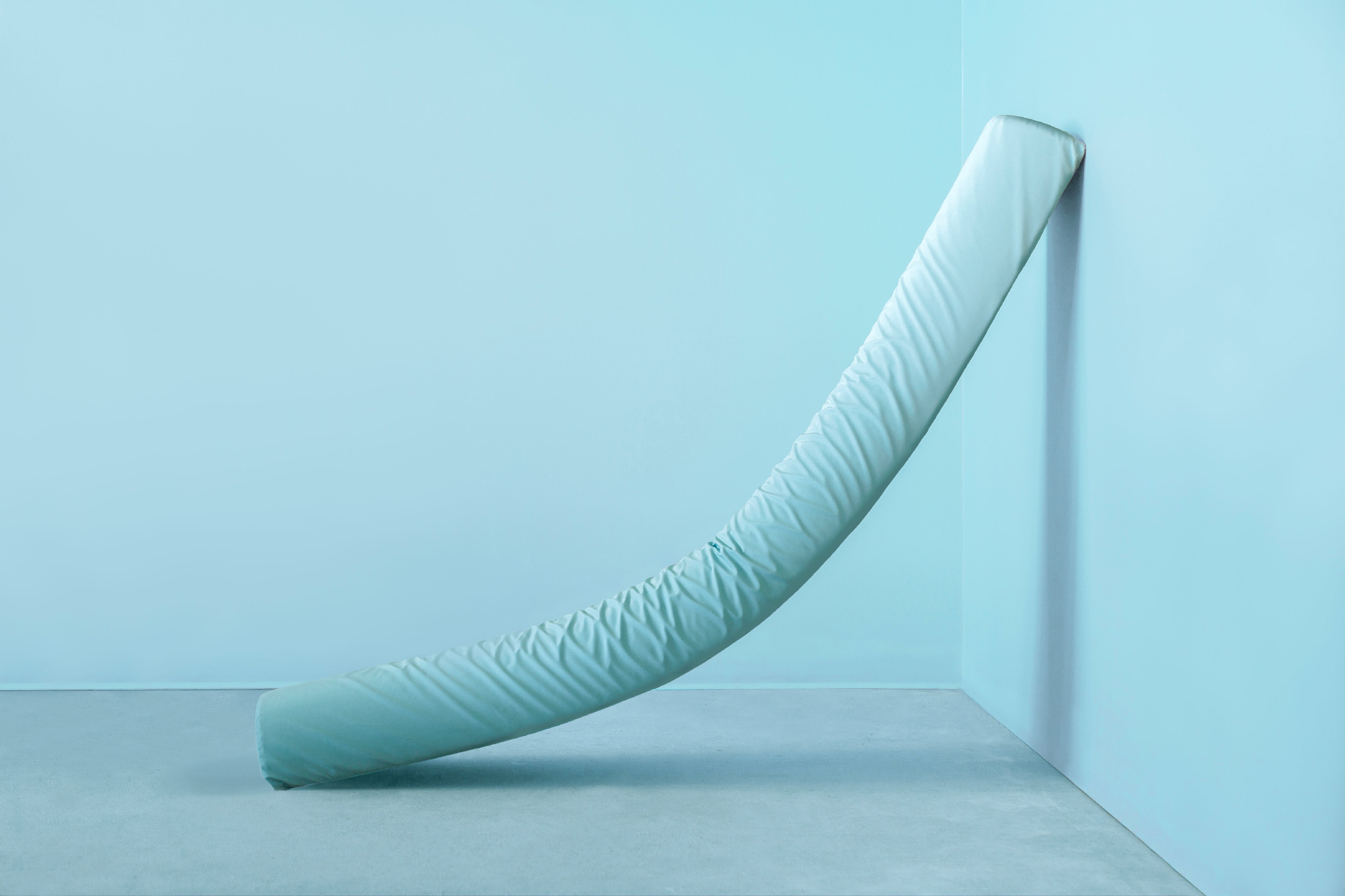
Free
Foundation
bleu de lieu is a participatory installation that invites the public to stay, to rest, to meditate and to interact with the different elements found in our Education Room
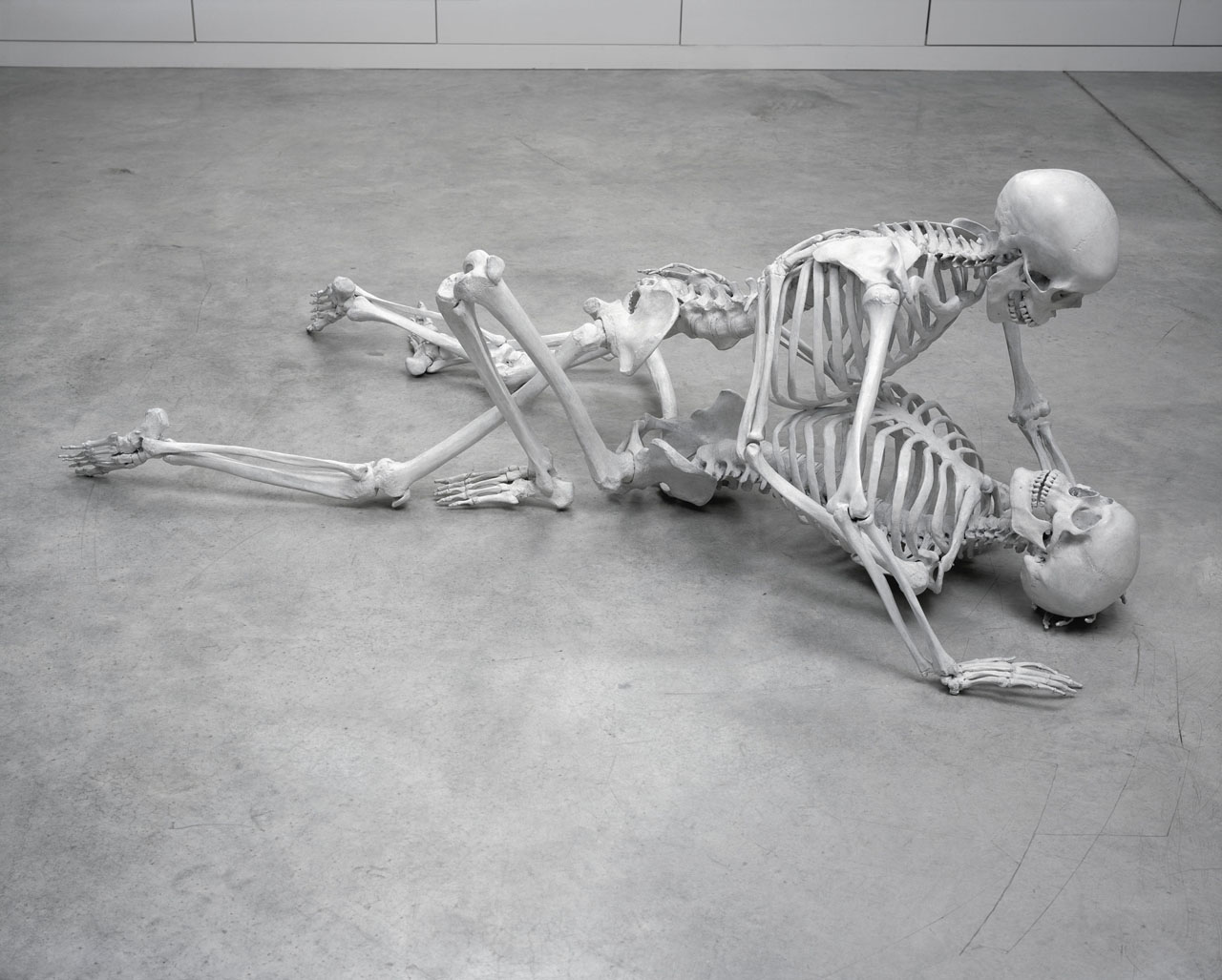
Foundation
Gathering over forty recent works, DHC/ART’s inaugural exhibition by conceptual artist Marc Quinn is the largest ever mounted in North America and the artist’s first solo show in Canada
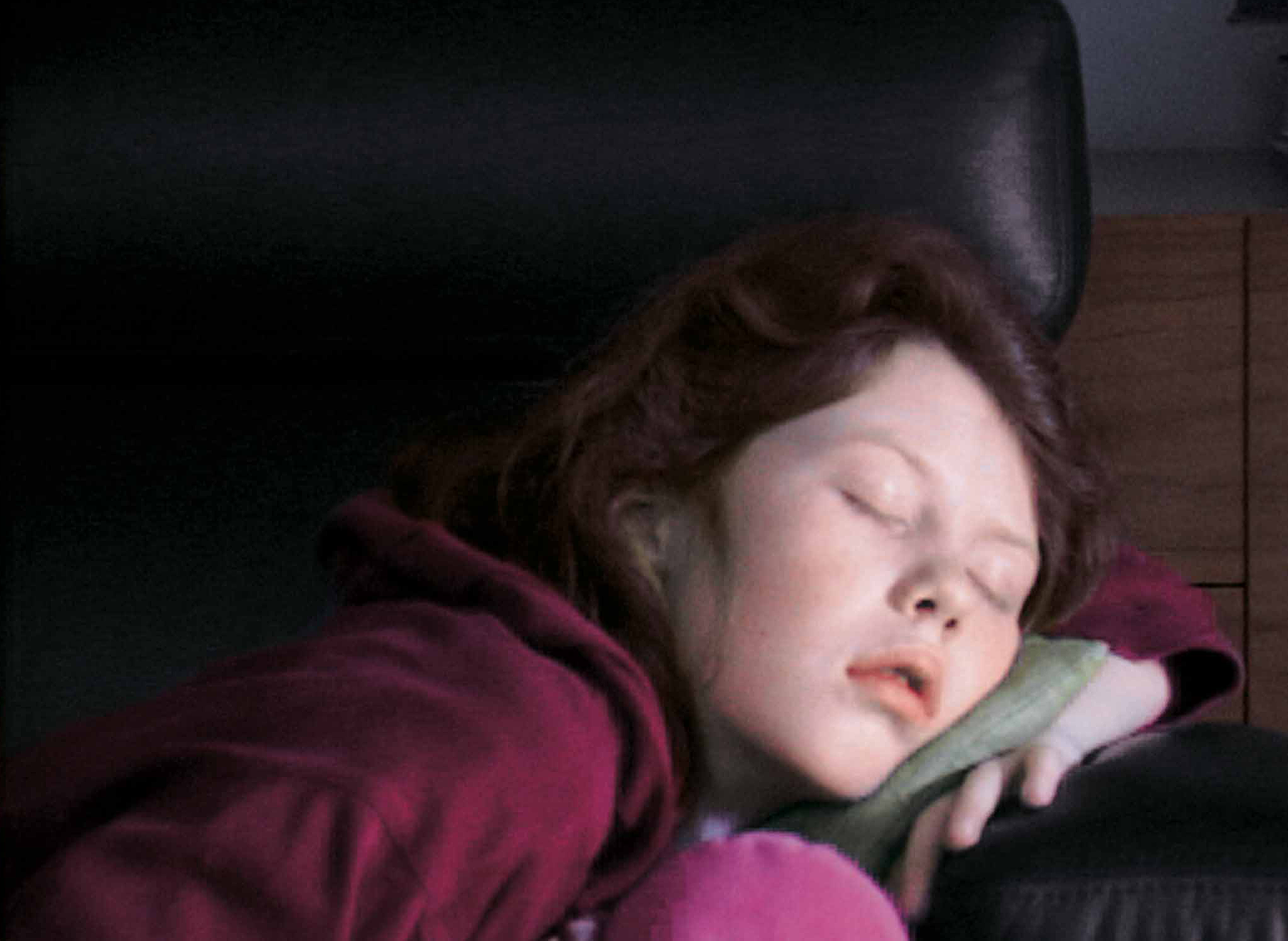
Foundation
Six artists present works that in some way critically re-stage films, media spectacles, popular culture and, in one case, private moments of daily life
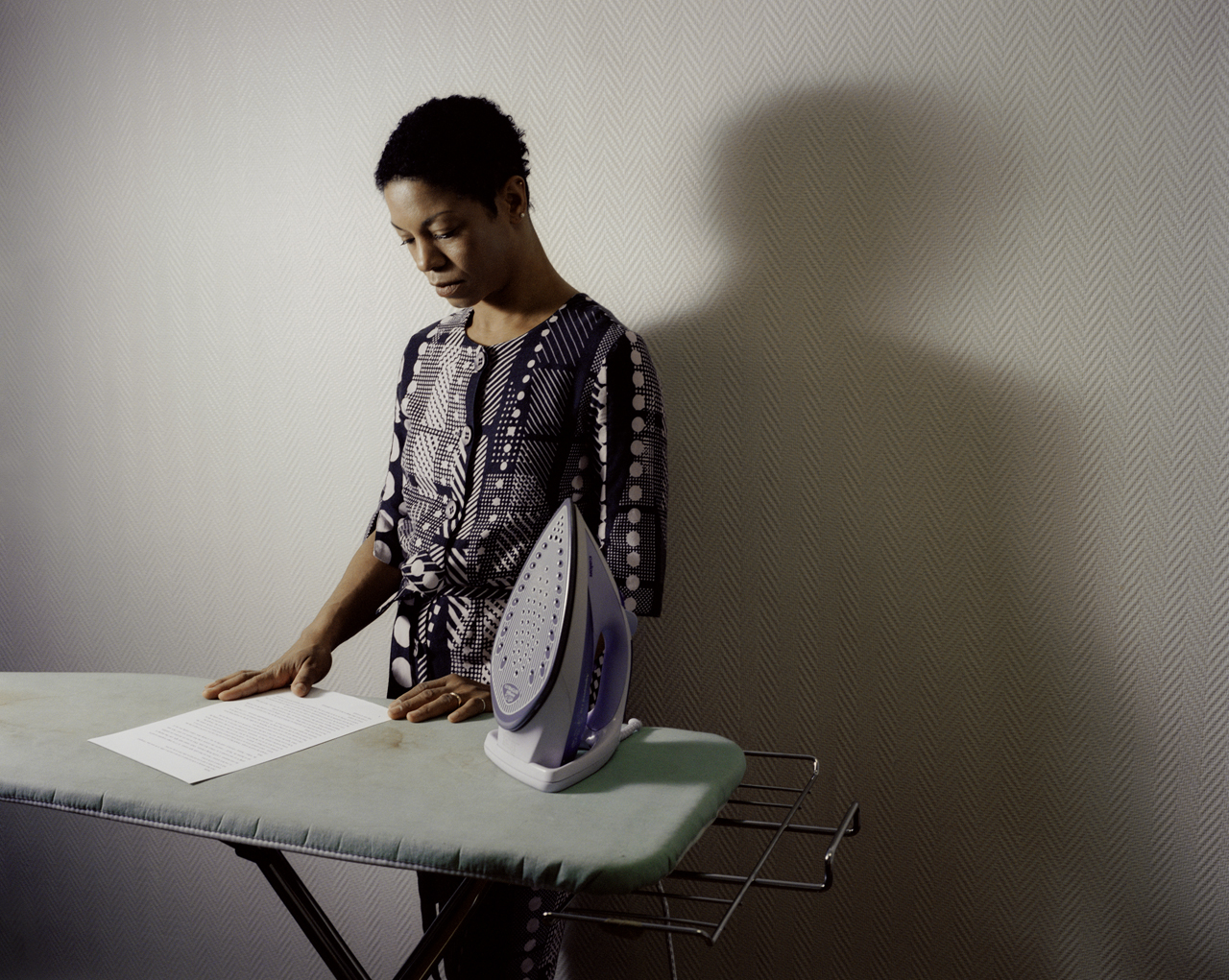
Foundation
This poetic and often touching project speaks to us all about our relation to the loved one
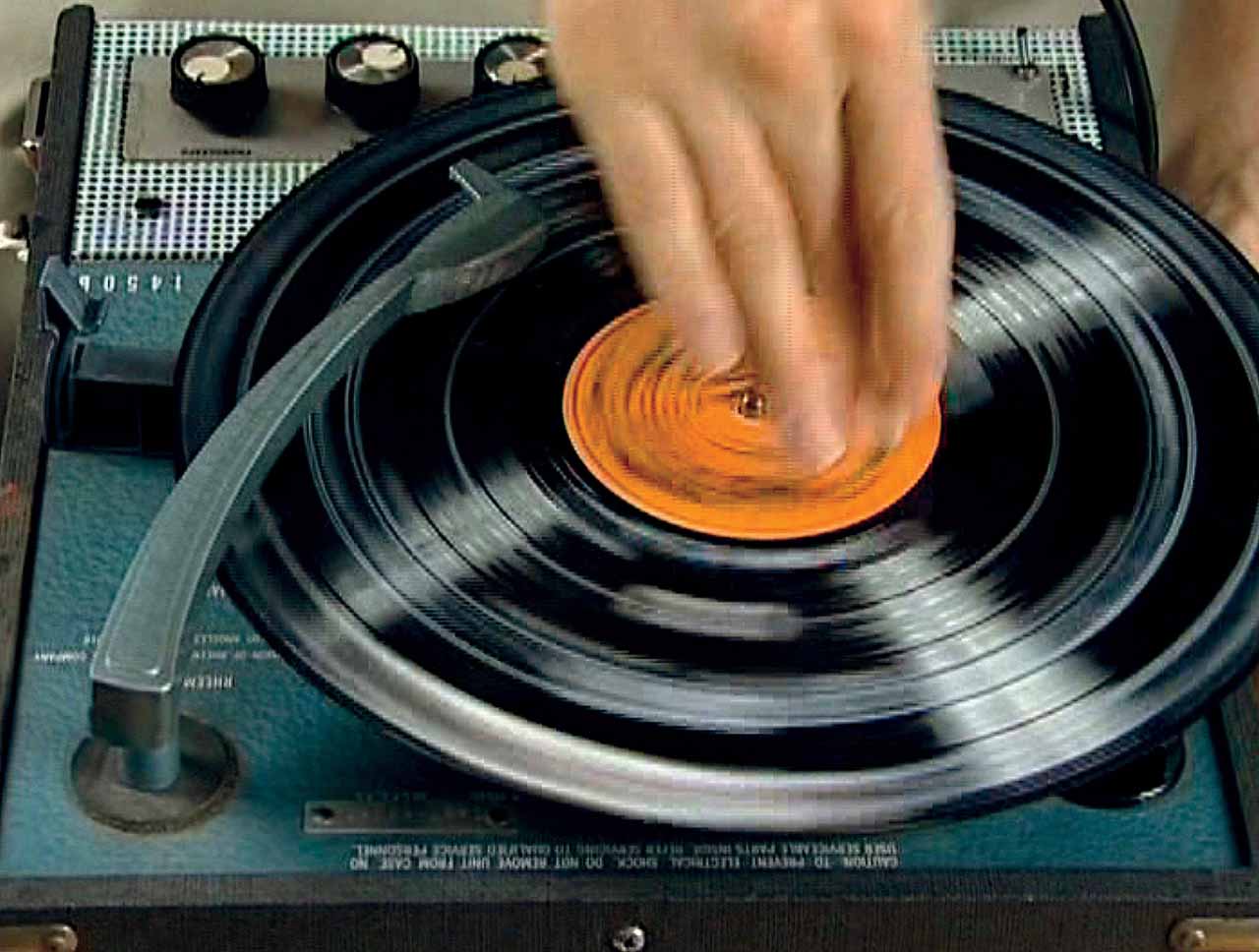
Foundation
DHC/ART Foundation for Contemporary Art is pleased to present the North American premiere of Christian Marclay’s Replay, a major exhibition gathering works in video by the internationally acclaimed artist
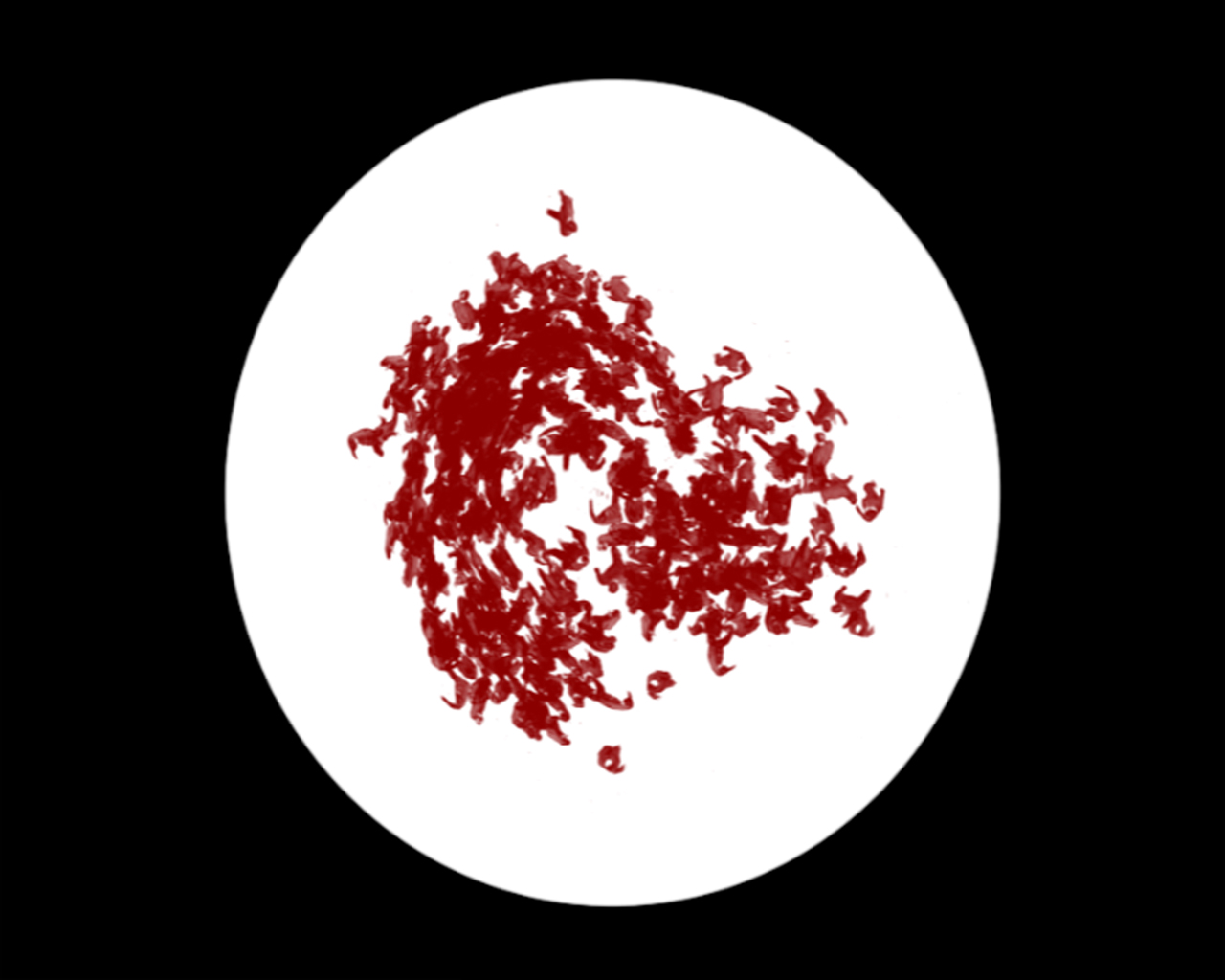
Foundation
DHC/ART is pleased to present Particles of Reality, the first solo exhibition in Canada of the celebrated Israeli artist Michal Rovner, who divides her time between New York City and a farm in Israel
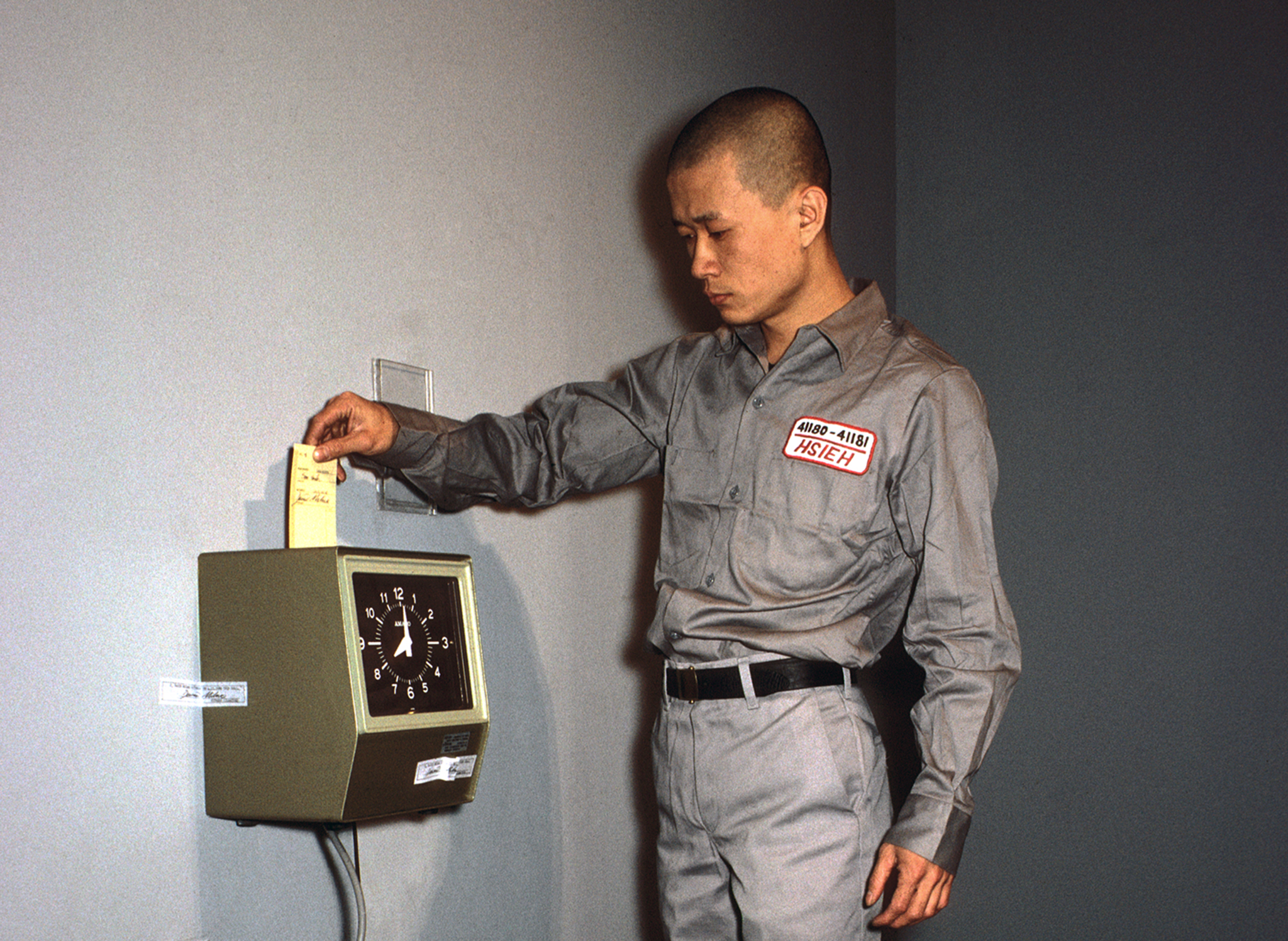
Foundation
The inaugural DHC Session exhibition, Living Time, brings together selected documentation of renowned Taiwanese-American performance artist Tehching Hsieh’s One Year Performances and the films of young Dutch artist, Guido van der Werve
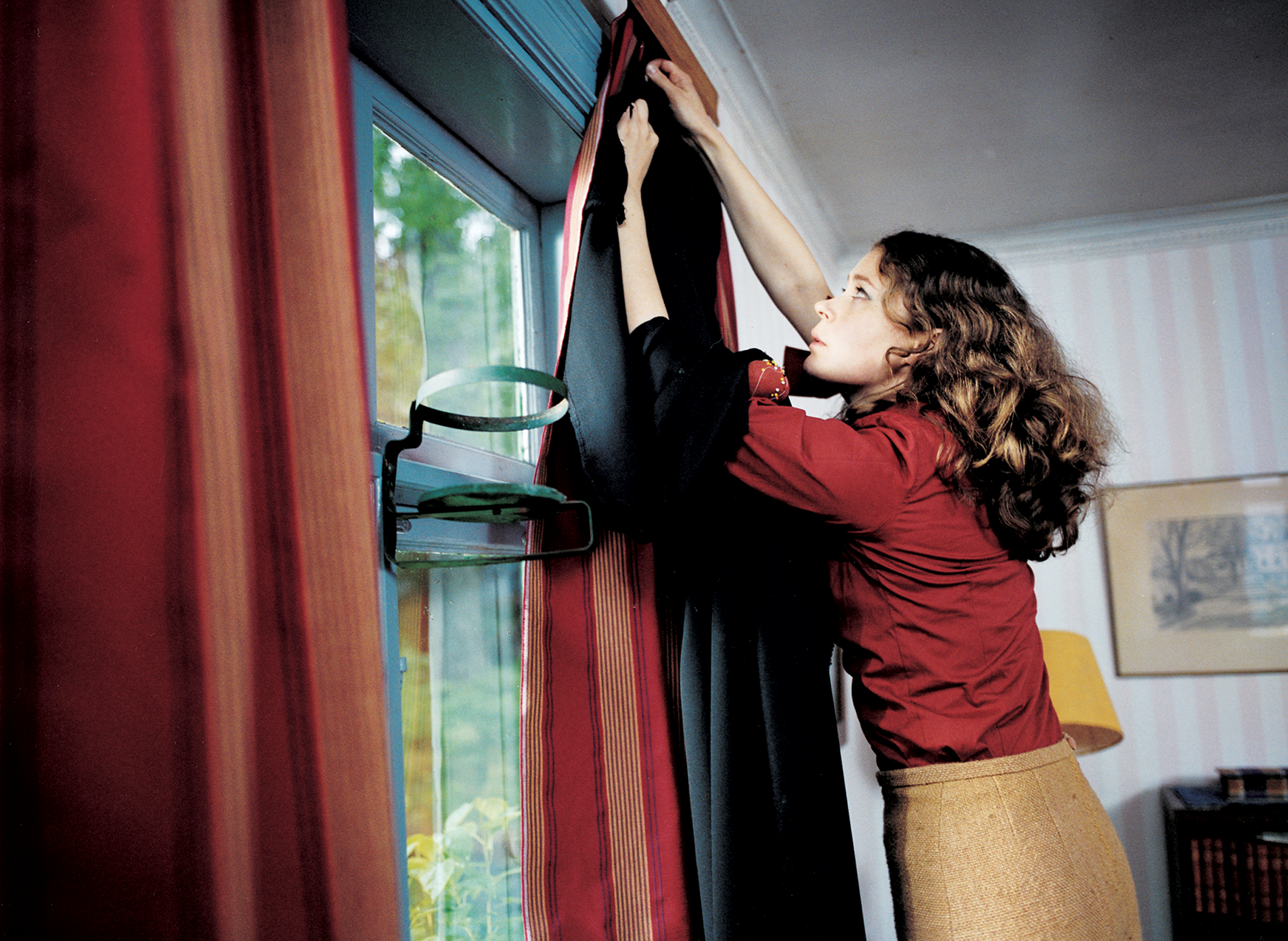
Foundation
Eija-Liisa Ahtila’s film installations experiment with narrative storytelling, creating extraordinary tales out of ordinary human experiences

Foundation
For more than thirty years, Jenny Holzer’s work has paired text and installation to examine personal and social realities